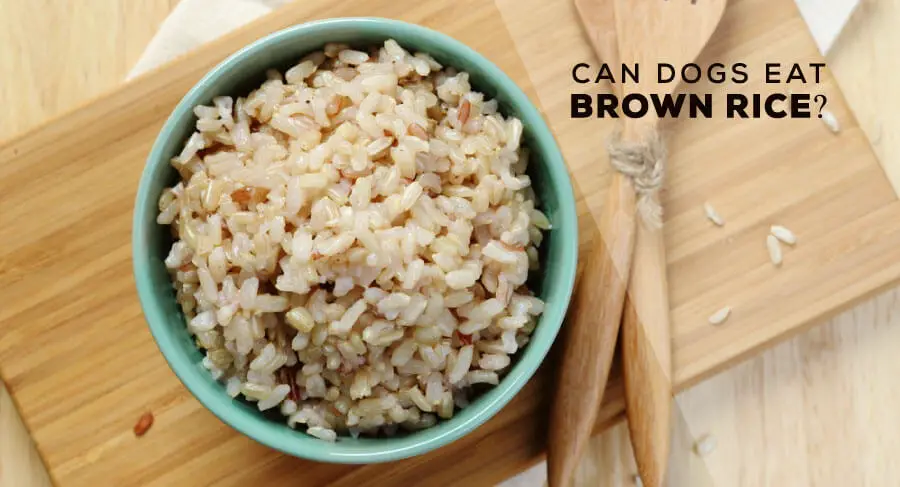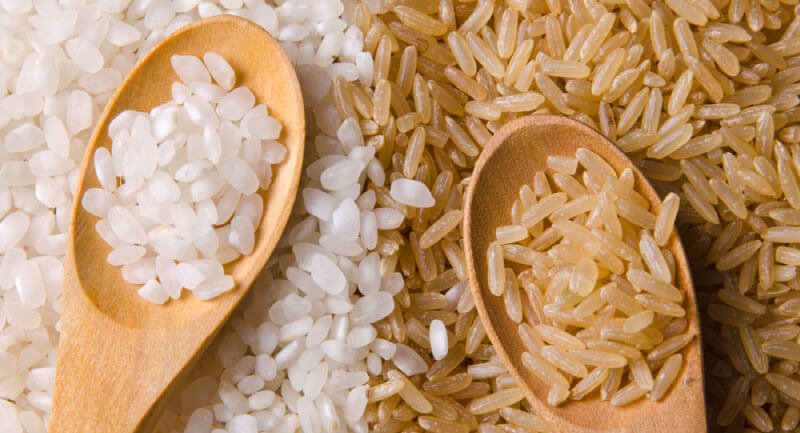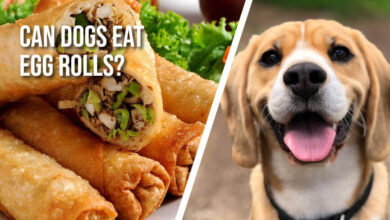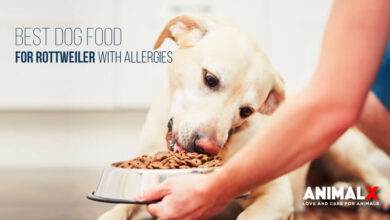Can Dogs Eat Brown Rice? Is It Safe for Dogs?
Today’s question – can dogs eat brown rice? This question baffles many dog owners. And for good reason. Before you feed your loyal dog anything new, you should always do some research so that it won’t cause any trouble?
Humans have enjoyed rice for hundreds of years now, but some dog owners wonder if their companions can enjoy rice as well. So if you are wondering can dog eat brown rice, this guide will provide you with all the information you need.
Over the centuries, brown rice has become a staple food in many cultures and countries. Take a look at the ingredients in the dog food you bought from the market, and you’re likely to find brown rice. As brown rice contains fibers and highly digestible carbohydrates, it has become a popular ingredient in many dog foods.
We will answer some questions you may have about feeding brown rice to your dog that will hopefully help you decide whether it is suitable for them or not.
Allergies to brown rice are rare, so you can often safely feed your dog brown rice. In fact, it can even relieve your dog’s allergies like itching and hair loss. But although it is easily digestible, not all dogs may be able to eat it.

Brown Rice for Dogs: Good Or Bad?
There is a common misconception that dogs are strictly carnivores and that you can only feed them meat. You must understand that dogs have evolved over the years as we have and are now capable of digesting starch as opposed to some of their ancestors.
Because of their evolved gastrointestinal system, dogs have been able to eat grains, such as brown rice, and enjoy many health benefits. We have another article where you can read about dogs eating yellow rice.
What Benefit Does Brown Rice Offer To Dogs?
- Besides providing fiber, the bran and germ parts of the grain also aid in weight loss and digestion.
- The mineral content of brown rice is exceptional, as it contains manganese, phosphorus, calcium, magnesium, selenium, potassium, and zinc.
- Brown rice is abundant in vitamins like Vitamin E and Vitamin K.
- Additionally, brown rice is an excellent source of antioxidants that prevent diseases.
- The energy-boosting, cognitive-improving, and gut-soothing properties of brown rice make it an excellent choice for your dogs.
- Apart from being beneficial for your dog’s digestive system, brown rice can also relieve your dog’s skin allergies, such as itchiness, redness, and hair loss.
Although, if you are asking, can a dog eat brown rice for diarrhea? The answer is no. It is not advisable to give brown rice to dogs with diarrhea.
Which Is Better between White Rice and Brown Rice?
So can dogs eat white rice or brown rice? Well, all white rice starts out as brown rice. The milling process removes the husk, bran, and germ. The primary purpose of this is to prolong the shelf life of the rice, but the process also removes nutrients like fiber, minerals, and vitamins. So, the nutritional content of white rice is artificially enhanced to counteract this.
Because our loyal companions need starch, you should feed them white rice. But as the glycemic index of white rice is greater than that of brown rice, it can cause blood sugar levels to rise. You can still give your diabetic dog white rice when necessary, but you shouldn’t give it regularly.

How to Prepare Brown Rice For Dogs?
When cooking rice for your dog, boil it in water without adding any herbs or spices. Your dog will not notice the difference if you keep it simple. Consult your veterinarian before adding new food to your dog’s diet, and then introduce it gradually.
But if you want to make it a little special, you can add turkey. Here’s how.
- Add water, ground turkey, rice, and rosemary to a Dutch oven.
- Cook over medium heat for 20 minutes, stirring every 10 minutes until the ground turkey is evenly distributed and broken up.
- Add the frozen vegetables and cook for another 5 minutes.
- Remove from the heat and let cool.
- Refrigerate until ready to serve.
Can Dogs Be Allergic to Rice?
Yes, dogs can be allergic to rice, but it’s rare. If your dog is allergic to brown rice, you will notice some symptoms like itchy skin, hair loss, ear infection, bumps, red paw pads, and obsessive licking. But these symptoms can also be a result of other allergies or health issues.
However, before cutting rice from your dog’s diet, it’s always a good idea to consult with your veterinarian to see if it’s a rice allergy or something else.
If your dog has health issues like inflammation and yeast infection, you can give it coconut. Yes, dogs eat coconut safely and experience its anti-inflammatory benefits.
What Other Grains Can I Give My Dog?
To avoid gluten, many dog owners choose grain-free food.
Some grains are high-quality foods as they offer more nutritional advantages. But not all grains are gluten-free. For more sensitive puppies, certain non-traditional ingredients may be a better option.
You can feed your dog brown rice. Other grains that you can feed your dog include whole wheat, barley, oats, millet, quinoa, sorghum, rye, and corn.
So, can dogs eat brown rice as part of a balanced diet? Yes, it provides your dog with critical nutrients rather than just being a cheap filler. However, when choosing dog food, remember that you should offer your dog a balanced and complete diet.
Although brown rice is generally healthy and suitable for dogs, it can cause stomach irritation and be difficult for some dogs to digest. In case your dog exhibits discomfort or inflammation, and you are still wondering, can dogs eat brown rice, it is best to consult your veterinarian.



